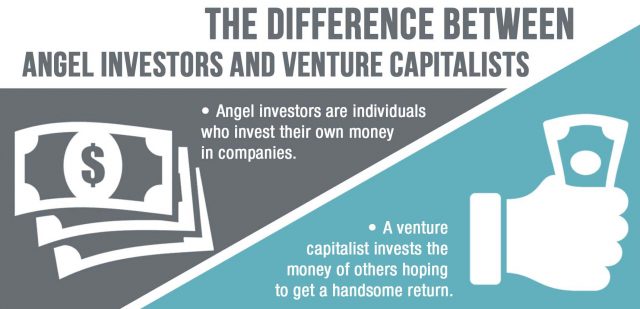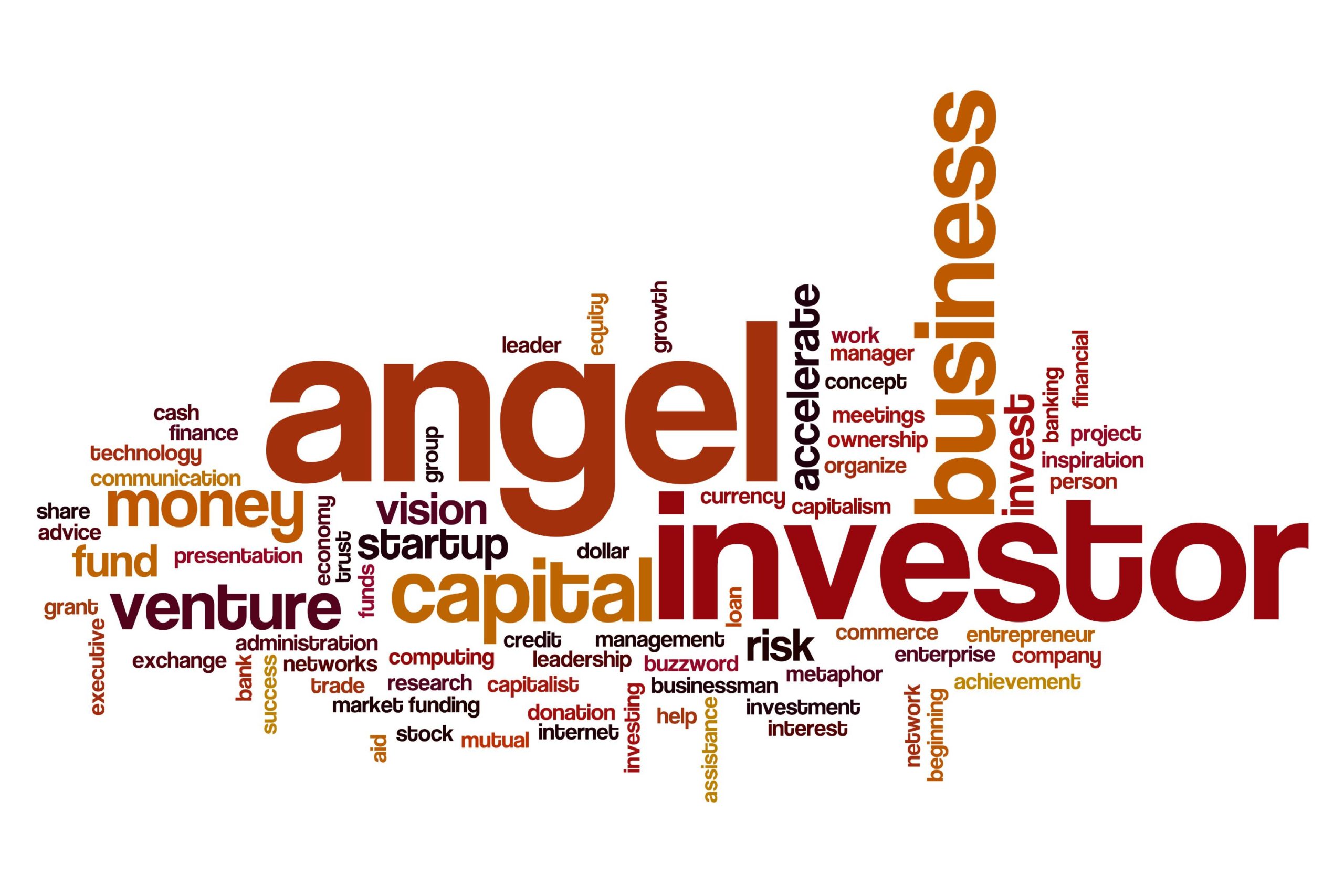Angel Investment vs. Venture Capital, 8 key differences, How to Decide Between Pitching to a Venture Capitalist vs. Angel Investor

Angel investors vs. Venture capitalist, 8 key differences, How to Decide Between Pitching to a Venture Capitalist vs. Angel Investor
Angel investors and Venture Capitalists are two of the most common alternative funding sources. Both angel investors and Venture Capitalists are interested in creative startup entities, with a preference for technology and Scientific Ventures.
Venture capitalists and investors, on the other hand, have major disparities. The term angel investors know by the term wealthy individuals who spend their own money in enterprises. Venture Capitalists are employees of risk capital corporations who make investments in other people’s money in startups.
Understanding the many sorts of investors that probably assist in the promotion of your company necessitates first learning how they differ from one another. Whether you operate a startup or a small firm, you must be able to recognize the several benefits that investors may give. You can assess which option is preferable for your firm by learning more about angel investment and Venture Capital.
Getting capital for your company isn’t easy, especially if you’re just getting started. However, you will require funds to keep your company ambition alive.
You could seek money from a Venture Capitalist (VC) or an angel investor, depending on the stage of your firm. Learn how to distinguish between a Venture Capitalist and an angel investor to choose the best option for you.
Angel investor vs. venture capitalist
Definition of Angel Investor

Angel Investors, known by the term Business Angels, Seed Investors, or Informal Investors, are high-net-worth people who frequently donate capital to startup businesses or young entrepreneurs in their early phases.
Angel investors have excess Cash that they want to make an investment in companies that can provide them with higher returns than they would otherwise receive. And for this reason, they make an investment in startups in return for an equitable interest after determining the idea’s development potential and returns on investment.
Financial support can come in the form of a one-time investment to assist developing businesses to get off to a good start, or it can come in the form of a regular injection of Cash to help the company get through the early phases quickly. Angel investors can provide capital in three ways: a corporate Loan, convertible preferred stock, or common stock.
They are highly favorable in terms of contract terms and conditions; their investment is in the entrepreneur starting the firm, not the idea or the business’s success potential.
Some business angels are active participants in the entities they make an investment in, while others provide capital. Crowdfunding is used by a large number of angel investors to contribute funds to entrepreneurs.
Definition of Venture Capitalist
A Venture Capitalist is a member of a major corporation or a professional who utilizes funds from other parties to make an investment in a new or fast developing enterprise, which is sometimes hazardous by injecting capital into the company.

Investors in Venture Capital businesses, like banks, financial institutions, insurance companies, pension funds, corporations, and high-net-worth people, are the third parties. It’s similar to supporting small enterprises or startups that are unable to get Cash from the financial sector.
Young and competent entrepreneurs advertise the starting firm since they lack the financial resources to convert their creative concept into a reality.
Venture capitalists give long-term funding and support to companies in terms of networking and product development.
Venture capitalists help entrepreneurs with business networking, the creation of new products or services, managerial experience, sales strategy, and advertising strategy, among other things. Equity financing, participation debentures, income notes, and conditional loans are all examples of Venture Capital funding.
The investment in Venture Capital funding is made for a lengthy time, usually three years or more. Typically, they purchase equity shares in a company to have the opportunity to participate in the management and to assist in the company’s early phases.
Venture capitalists and angel investors are those who make an investment in businesses. Both angel investors and Venture Capitalists take calculated risks with the aim of generating a profit when it comes to investing (ROI).
What is the difference between angel investors and Venture Capitalists, exactly? Knowing the answer to this question can save you time and help you pick the best financing option.
The following are some major distinctions between angel investors and Venture Capitalists.

- How they operate
The sort of finance that Venture Capitalists and angel investors make an investment with is one differentiator.
A Venture Capitalist is a person or an organization that invests in small enterprises using money from large corporations, pension funds, and investment entities. VCs frequently do not support their own money in companies.
An angel investor is a licensed investor who makes personal investments in small businesses. A person must have a net worth of $1 million and an annual income of at least $200,000 to be considered an accredited investor. Many angel investors are relatives and friends of small company entrepreneurs.
Small business angel investors are more concerned with assisting in the growth of a company than with making a quick profit. As a result, their terms may be more palatable than those of a Venture Capitalist.
- When they make an investment,
Venture capitalists and angel investors invest in business at various stages of development. Whether you’re a well-established business or a startup, the sort of investor you seek will depend on your situation.
To limit the risk of losing money, Venture Capitalists prefer to make an investment in well-established enterprises.
Angel investors are more willing to make an investment in enterprises that are still in the early stages of development. Even if the firm has not yet established itself, they chose enterprises they are interested in and can see lucrative. As a result, angel investors assume higher risks than Venture Capitalists.
If you’re just getting started, an angel investor could be able to help you get your business off the ground. If you’re already established and want to grow, consider pitching a Venture Investor.
- Amounts of investment
Another difference between an angel investor and a Venture Capitalist is how much money they are prepared to put into a company.
Angel investors make smaller investments in businesses than Venture Capitalists (VCs). According to the Small Business Administration, the typical Venture Capital deal is worth $11.7 million.
The average angel investment, according to the SBA, is $330,000. Venture capital investments are in the millions, while angel contributions are in the hundreds.
- Expected Return
Angel investors and Venture Capitalists have distinct expectations for their investments. A higher percentage is expected, according to Venture Investors.
Venture capitalists could expect a 25 percent to 35 percent return on their investment.
Angel investors might expect a 20% to 25% return on their investment.
- Funding sources
The sources of money provided by angel investment and Venture Capital are different. Angel investors are usually family members, friends, or affluent individuals prepared to put their own money into a Business Venture. Venture capitalists, on the other hand, work for Venture Capital businesses, banks, colleges, and insurance corporations. As a result, the money you get from vendor capitalists comes from the company they work for.
- Sources of financing
The type of funding you can receive from these investors is another distinction between angel investing and Venture Capital. You often receive financing in the form of money to use toward your company expenditures when you make an investment with angels.
You get money through Venture Capital, but there are alternative methods for Venture Capitalists to support your firm. Companies are often funded by Venture Capitalists who provide them with top-tier specialists to work for them. They may provide free marketing and other crucial strategies to assist startups in increasing their client base or other activities.
- Focused industries
Angel investment may take place in any sector till the business to which the angel investor contributes money is in one that they are familiar with. Venture capitalists, on the other hand, often hunt for startups in industries with the best market or profit prospects because they work for major institutions.
Information technology is a prominent Venture Capital business. Venture Capitalists frequently invest in startup software entities in the hopes of gaining national prominence for the program.
- Purpose for investing
When angel investors are family members or friends, their purpose may be to support their loved ones’ ambitions. Wealthy professionals, on the other hand, can become angel investors. The reason for investing might vary for this group.
They could make an investment in a startup because its ambitions are similar to their own. A successful businessperson, for example, may make an investment in a firm that provides fair trade apparel.
Angel investors may invest in a startup to expand their professional portfolio or get a return on their investment, which they probably use to support their own company endeavor in the future.
Similarly, Venture Capitalists often invest in a startup or small firm with the main aim of eventually buying it out or generating an important profit.
Key differences
Angel Investors and Venture Capitalists: What’s the Difference?
In terms of the distinction between angel investors and Venture Capitalists, the following points are critical:
1.Angel investors are rich individuals who make investment their money in a startup firm with great development potential in return for a share of the company’s ownership.
A Venture Capitalist, on the other hand, is a person or company that was formed to provide funds by pooling investment funds from a variety of sources to make an investment in new and emerging businesses and entrepreneurs in order to help them grow and expand in the market while generating good returns for investors.
2.Angel investors are high-net-worth individuals who have built profitable businesses. Venture capitalists, on the other hand, are the most well-run public and private organizations.
3.Angel investors put money into a company when it is in its early stages or pre-revenue. Venture capitalists, on the other hand, make an investment in businesses that have progressed past the pre-profitability stage.
4.Angel investors are wealthy individuals who put their personal money into emerging entities with significant development potential. Venture capitalists, on the other hand, combine money from a range of sources, including insurance companies, funds, foundations, and corporations, to make an investment in enterprises that are fast developing and in need of funding.
5.The amount invested in entities by angel investors is far smaller than that invested by Venture Capitalists.
6.When it comes to screening, angel investors use their knowledge and experience to conduct the process. However, in the case of Venture Capitalists, screening is done by a group of professionals or an independent business that specializes in this area.
7.An angel investor is a person who invests in a company and takes an active role in it. However, after making an investment in a business, Venture Capitalists have a strategic role in the company.
8.Angel Investors are mostly interested in ex-post involvement investment requirements. Venture capitalists, on the other hand, place a premium on the first screening of investment ideas.
9.When it comes to agency risk management, angel investors use the incomplete contract technique. Venture capitalists, on the other hand, prefer the principal-agent approach.
Similarities
Both angel investors and Venture Capitalists seek to provide financing to entrepreneurs or small businesses with a unique idea and the potential to succeed. Furthermore, they are more receptive to scientific and technological concepts.
Working with angel investors has its advantages and disadvantages.
To help you determine if angel investors are ideal for you, here are some of the advantages and disadvantages of dealing with them:
Pros of working with angel investors

Debt financing does not provide the same level of security
Angel investing protects money and ensures future financial stability for startups better than debt funding. In debt financing, startups borrow money from financial institutions and must repay it by a certain date. Angel investors, on the other hand, are primarily concerned with the company’s future return on investment once it has grown.
Institutions are less willing to take risks than individuals
Because it is their own money, angel investors may be more ready to take risks and make an investment in a startup firm than institutions. Individual investors do not have the same constraints like institutions in terms of thinking about how it impacts their own financial stability and stakeholders.
Entrepreneurs should be provided with industry expertise
Lastly said, some angel investors have important experience in the industry in which a startup firm operates. Their enthusiasm for the sector may have prompted them to make an investment in the first place. As a result, you may be able to acquire excellent business advice or perhaps a mentor for your firm.
The monies are not obligated to be repaid.
Angel investors do not expect you to repay them if you decide to sell or close your firm because they choose to put their money in it.
Cons of working with angel investors
Allows for the participation of a third party
Because they put their own money into your firm, some angel investors may purchase shares or claim part ownership. This may be avoided by creating clear management standards early on in the process.
Slow financing is a possibility
You may not always have a consistent flow of Cash or the number of funds you require since angel investors are spending their funds to fund your startup. This may be remedied by engaging the support of many angel investors or relying on a single angel investor to provide Cash if certain business milestones are met.
Working with Venture Investors has its advantages and disadvantages.
Consider the following advantages and disadvantages of dealing with Venture Capitalists:
Pros of working with Venture Capitalists
Increases the quantity of money available
Because Venture Capitalists work for large organizations, they have a lot of money to make an investment in your company. This implies you’ll be able to get enough money to not only start but develop your firm.
Makes use of industry contacts to promote your company
Venture capitalists and the corporations for which they work probably assist you in growing your company by spreading the word about your goods and services to other companies in your industry. You know you can rely on them to boost your credibility since they put their time and money into your firm.
It absolves you of the need to repay payments
Venture capital, like angel investing, does not compel you to repay them for their investment. You may just have to provide them with a return on investment in the form of a profit share.
Professional assistance, assists you in extending your business
Some Venture Capitalists, as previously indicated, supply funding in the form of competent experts to work for your firm. This can aid in the success and expansion of your company.
Cons of Working with Venture Capitalists
Allows someone else to have a voice in how your business is run
Venture capitalists may expect you to delegate considerable decision-making authority to them like a result of their large investment in your firm. Include them in critical decisions, value their advice, or add them to the board of directors to remedy the problem.
![]()
Increases the chances of being bought out
After seven to ten years, Venture Investors may wish to buy out your firm. If you want to stay at the top of your firm, you should establish such rules immediately. You may, on the other hand, use a buyout to your advantage and make a big profit that you can put into another company endeavor.
The function of an investor in a business
When it comes to investing in your small business, what do investors expect?
Angel investors and Venture Capitalists both want a piece of your firm and/or a say in how it runs. Because they made investment money into it, they want to make sure they get a decent return on their investment.
Venture investors may require that you create a Board of Directors and give them a seat on it when they make an investment. They are frequently uninterested in functioning like mentors however this varies by industry
Many angel investors act like role models for their protégés. They can advise you on how to run your business, connect you with attorneys, accountants, and banks, and help you make decisions.
What qualities do you want in an investor? Are you seeking a business partner and mentor, like angel investors? Or, like VCs, would you prefer if the investor did not operate like a mentor?
How to Make an Investment Pitch
You must be prepared whether you want Venture Capitalists or angel investors to make an investment in your small firm. Your investment pitch will need to be perfected.
Before you pitch to Venture Capitalists or angel investors, do some research to see which ones are the best fit for your company.
Demonstrate your company strategy, Financial accounts, Financial predictions, marketing ideas, and market analyses to investors during your pitch.
You’ll need to explain how much capital you’re looking for, how much money you’ve already put into your company, and how you plan to spend it.
Conclusion
Angel investors are past entrepreneurs who make an investment in their own money in newcomers in order to help them succeed. Venture investors, on the other hand, search for a compelling concept, a solid product, and a viable business strategy with a distinct competitive edge, and competent entrepreneur.




